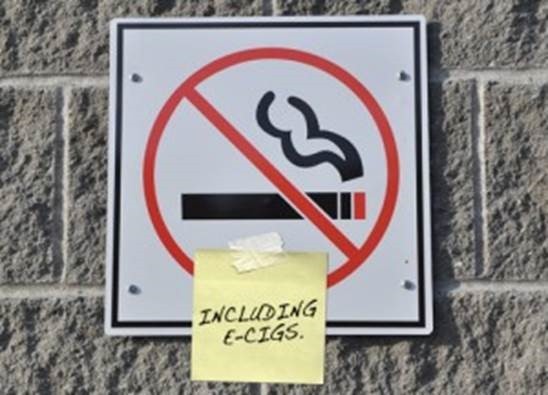
KUALA LUMPUR: The the e-cigarette industry remains unregulated in Malaysia and experts believe it is imperative for proper and effective regulation of the sector.
This will raise the standards of products in the market, provide quality assurances to users, and complement the government's long-term goal of reducing tobacco consumption.
RELX Technology, Asia's leading e-cigarette manufacturer, has also expressed strong support for regulations of the industry.
"Reasonable regulations, especially on product standards, protect the interests of consumers," RELX regional director of external affairs Eddie Chew said.
According to Hong Leong Investment Bank, there are at least half a million e-cigarette users among the smoking population in Malaysia.
This increasing prevalence of e-cigarette use in Malaysia has brought about an entirely new industry comprising mainly small and medium enterprises (SME).
Many e-cigarette users have expressed that they have taken up vaping as a means to quit tobacco use, according to a 2018 study by the RCSI & UCD Malaysia Campus.
As the industry continues to grow, vaping-specific regulation is required to support legitimate Malaysian businesses and protect consumers.
Industry groups such as the Malaysian E-Vaporizers and Tobacco Alternative Association (MEVTA) estimated that sales was amounted RM2 billion in 2015, a clear positive impact on the economy.
In enacting effective regulations, the government will be able to professionalise the industry by mandating minimum standards that will be beneficial to consumers and society at large.
This includes providing product quality standards and enacting safeguards to prevent minors from accessing e-
cigarette products.
With the proper execution of effective government regulations, the government will be able to better tackle the circulation of illegal products in Malaysia to ensure only genuine, approved products can be used in accordance with their purpose as a tobacco alternative for adult smokers looking to transition away from smoking.
"E-cigarettes continue to be a good alternative to traditional smoking, but only for adult smokers.
"They are not for minors, and the industry will benefit from regulations that restrict minors from getting their hands on any form of e-cigarettes. Responsible companies will support such regulations," Eddie said.
Malaysia has a high rate of smoking, with 22.8 per cent of the Malaysian population aged 15 years and above, identified as smokers in 2015 by the National Health and Morbidity Survey 2015.
A fair and effective regulatory approach will allow Malaysian smokers to have access to safe, legitimate alternatives while
ensuring that concerns such as youth vaping are properly addressed.
The United Kingdom is one of the countries with well-established regulations for e-cigarettes.
Under the Tobacco and Related Products Regulations 2016, e-cigarette products containing nicotine are subject to minimum standards of quality and safety, to ensure customers decide wisely with proper packaging and label providing sufficient information.
Additionally, University College London (UCL) discovered that e-cigarettes helped 50,000-70,000 smokers in England to quit in a single year.
In New Zealand, the new Smokefree Environments and Regulated Products Amendment Act 2020 comes into force on 11 November 2020, providing a balanced approach between helping smokers quit by offering vaping as an alternative, while discouraging children and young people from taking it up.
Effective and balanced regulation can provide the same benefits to Malaysia, ensuring only quality products are allowed for sale to legal-age consumers.
The professionalisation and standardisation of the industry will also provide support to legitimate Malaysian small business owners, the engine of the economy, and eliminate illicit trade that is detrimental to consumers and the economy.
Source: https://www.nst.com.my/business/2020/09/623394/malaysia-should-balance-e-cigarette-regulations-better-economic-outcomes

